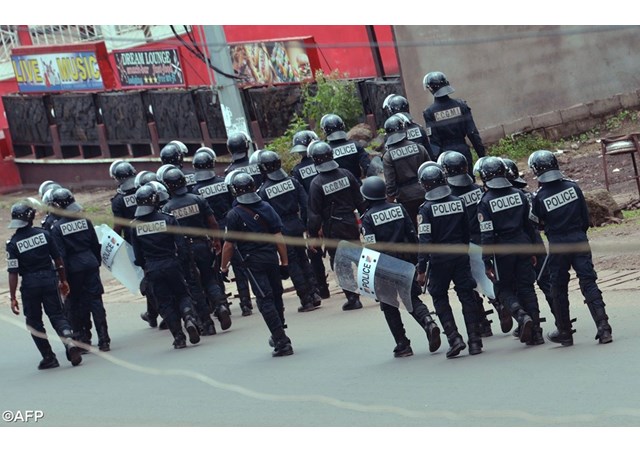
Cameroon: Justice and Peace Commission calls for dialogue

Cameroon’s Episcopal Commission for Justice and Peace has called upon "protagonists of the country’ secessionist protests, to seek a peaceful solution through dialogue in the light of the truth." This is according a statement issued by the Commission and made available to Agenzia Fides.
Reuters reports that a separatist movement in Cameroon's Anglophone regions is gaining ground after a year of state repression that has undermined moderate voices and raised concerns the majority French-speaking nation may face a prolonged period of violence.
Soldiers shot dead at least eight people and wounded others in the two English-speaking regions on Sunday, the anniversary of Anglophone Cameroon's independence from Britain. Amnesty International said Monday at least 17 people had died in the clashes.
Calling for more decentralisation in the English speaking regions, the Justice and Peace Commission criticised the government for failing to handle the crisis and for isolating moderate voices.
The growing influence of the separatists, who include armed radical elements, is one of the most serious threats to stability in the central African oil producer since President Paul Biya took power 35 years ago.
Like many moderates who say they are marginalised by Biya's Francophone-dominated government, Tapang Ivo Tanku, an Anglophone activist based in the United States, has campaigned for a peaceful solution: a two-state federation - one French-speaking, the other Anglophone - under one president.
"I am in the minority now," he told Reuters from New York. The strife began in November (2016), when English-speaking teachers and lawyers in the Northwest and Southwest regions, frustrated with having to work in French, took to the streets calling for reforms and greater autonomy.
Six people were killed in those protests, and in the months that followed, the government deployed thousands of police and elite soldiers, implemented a blanket internet blackout and arrested dozens of activists, dubbing them "terrorists."
The thousands who protested on Sunday around the country were no longer calling for reform, but for a separate state for Cameroon's nearly five million English speakers.
"We told them our problems. They responded with force, killing us," said a young student in Bamenda, one of the largest Anglophone cities. "We need our own country."
(Agenzia fides/Reuters)
| All the contents on this site are copyrighted ©. |


